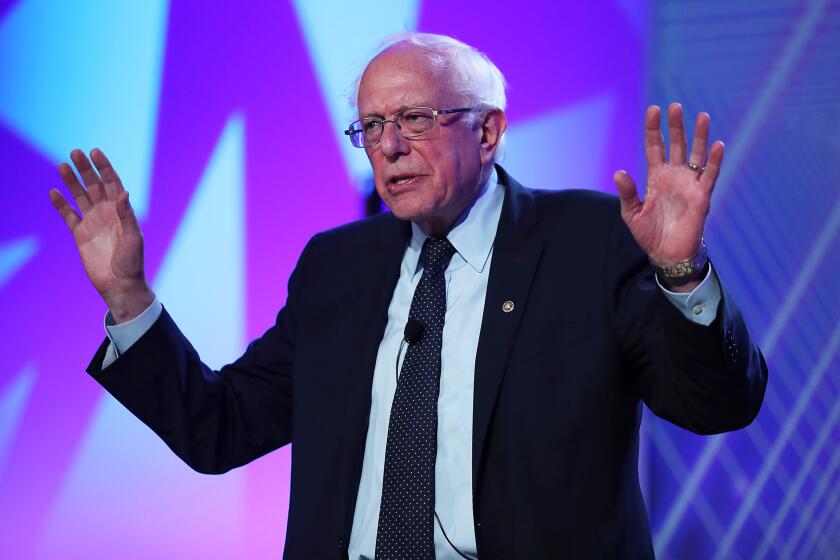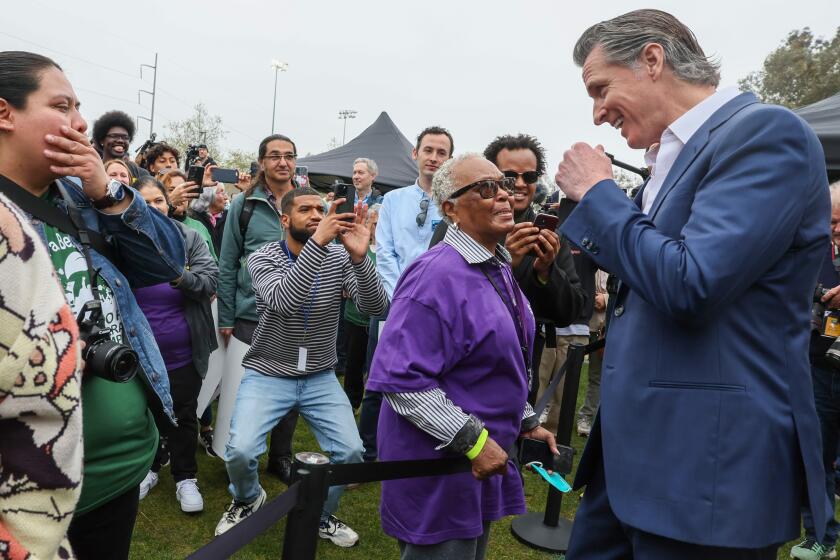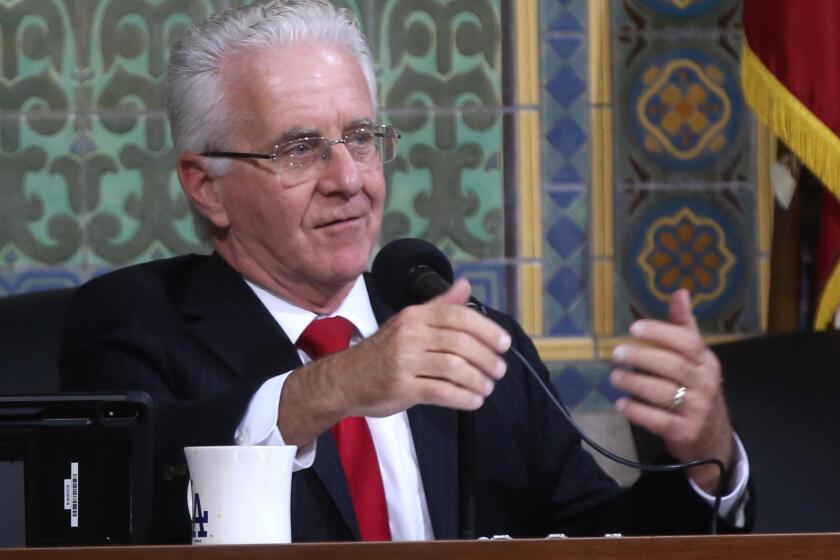Judges Vote to Avoid Discriminatory Clubs : Ethical Guideline Adopted by State Assn. Calls Membership in Restricted Groups Inappropriate
After sharp debate, the California Judges Assn. approved new ethical guidelines Monday telling the 1,380-member judiciary that they should not belong to organizations that practice “invidious discrimination on the basis of race, sex, religion or national origin.”
The association adopted an amendment to the California Code of Judicial Conduct saying that it is “inappropriate” for a judge to hold membership in any such organization.
The action came with strong support from women judges and represented one of the strongest stands yet by a legal organization against membership in exclusive clubs or service organizations.
Judicial Conscience
Both the American Bar Assn. and the U.S. Judicial Conference, representing federal judges, have adopted similar guidelines--but have added provisions saying that it is up to a “judge’s own conscience” whether the organization he belongs to is guilty of “invidious discrimination.”
The State Bar Board of Governors last month approved a policy statement urging lawyers not to use discriminatory clubs for business or professional purposes and suggesting that law firms not pay membership dues for attorneys who belong to them.
The Code of Judicial Conduct provides non-statutory guidelines for judges, and the California Judges Assn., which represents nearly all of the state’s judiciary, itself neither investigates nor disciplines judges. But the state Supreme Court takes the code into account when it disciplines judges at the recommendation of the state Judicial Performance Commission, the agency that evaluates complaints of judicial misconduct.
There was little consensus among the judges on the immediate scope and effect of their action. Los Angeles Superior Court Judge Philip M. Saeta, one of the sponsors of the amendment, predicted that judges who remain members of discriminatory clubs could face disciplinary proceedings before the Judicial Performance Commission.
However, Jack E. Frankel, chief counsel to the commission, said that while the new provision would serve as a guideline for the commission and the state Supreme Court, it is unclear whether membership in a discriminatory club in itself would be grounds for disciplinary action. Some judges predicted that adoption of the amendment would encourage many of their numbers to resign from private clubs that discriminate.
San Francisco Superior Court Judge Ina Levin Gyemant, one of the supporters of the new guidelines, said she hoped that judges, rather than resigning, would work to see membership barriers removed in clubs that now discriminate.
“The action today will enhance the image of judges in the community,” Gyemant said. “They will be perceived as more fair.”
Although the amendment addresses all forms of invidious discrimination, Monday’s debate focused on clubs that exclude women.
Supporters of the judges’ new guidelines argued that membership in all-male and other exclusive clubs offends the principle of equal justice and gives the impression that a judge will not be fair to those he may personally consider inferior.
Opponents said the guidelines would infringe on the right of free association. They said that, particularly in smaller communities, membership in all-male service clubs and other organizations is widely accepted and does not reflect bias against anyone who is excluded.
Los Angeles Superior Court Judge Judith C. Chirlin urged passage of the amendment to the code, saying that what is at stake is “not just a women’s issue” but instead the “public confidence in the court.”
Alameda Superior Court Judge Richard A. Bancroft also urged passage, saying: “We are different because we are judges; we are supposed to look fair in the community.”
But several opponents contended that while they personally favored removing barriers to women in such organizations, they did not see these groups’ policies as reflecting prejudice.
“We’re not talking about the Ku Klux Klan,” said Tulare Municipal Judge Walter Gorelick. “We’re talking about groups that support orphans, the immunization of children and other worthwhile activities in the community.”
Merced Superior Court Judge Michael S. Hider said he owed his election to the bench in part to his membership in the Elks, Kiwanis and other all-male clubs. “I’ve worked very, very hard since then to be a good judge,” he said. “I find it absolutely incredible that anyone would believe that in my court men would be treated more favorably than women.”
The judges voted 292 to 218 to call memberships in discriminatory clubs “inappropriate,” adding that provision to an existing canon in the code that says judges “should avoid impropriety and the appearance of impropriety” in all activities.
In a separate action, the judges voted 278 to 183 against another provision that would have said that each judge must determine according to the “judge’s own conscience” whether an organization practices “invidious discrimination.”
Such discrimination generally is defined as implying that people excluded from membership are inferior.
More to Read
Start your day right
Sign up for Essential California for news, features and recommendations from the L.A. Times and beyond in your inbox six days a week.
You may occasionally receive promotional content from the Los Angeles Times.






